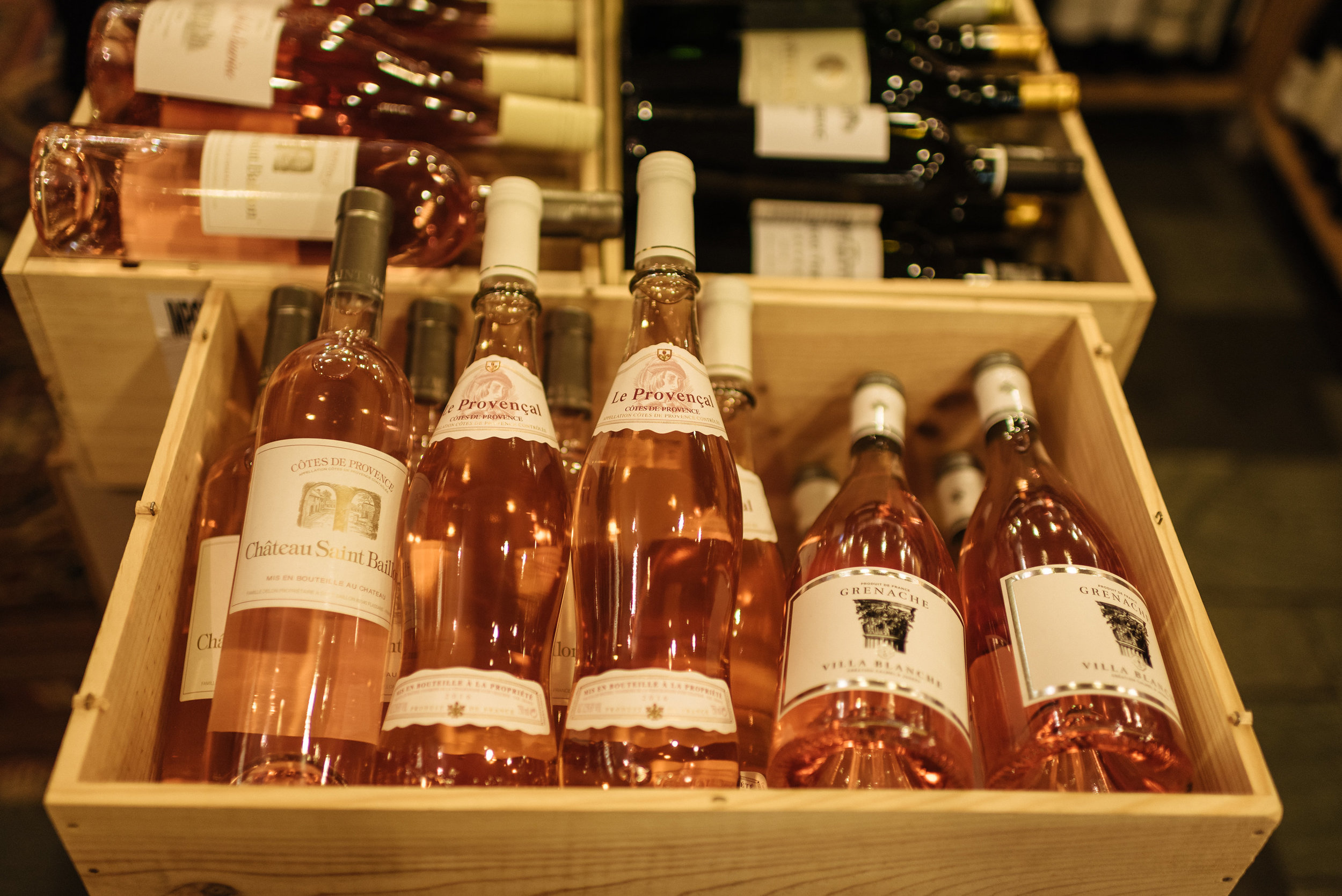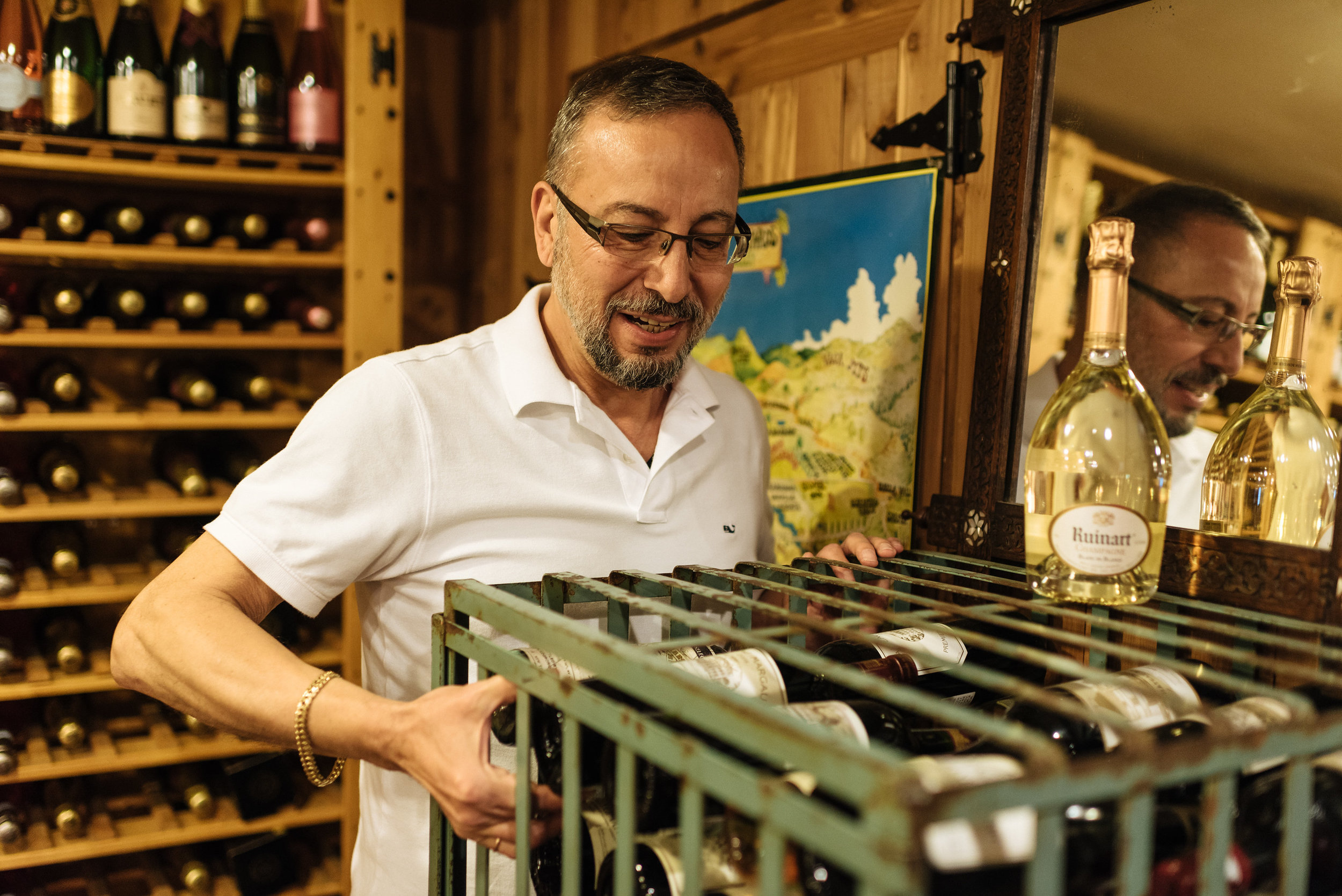‘I Like Always Having a New Adventure’
One hundred and fifty Syrian wedding dresses hang in a temperature-controlled storage facility in DC, one of the largest single collections in the world.
They belong to Bassam Al-Kahouaji, the congenial owner of Bacchus Wine Cellar in Book Hill.
‘I was impressed with all those girls and women who embroidered all of their wedding dresses for themselves,’ says Bassam, born in the Middle East to a family who owned one of the first textile and antiquities stores in Damascus. ‘Over there, when you are seven or eight, your mom would tell you how to do embroidery and you start your wedding dress for the future.’
Bassam’s past lives were all a start for the future, a man defined not by a singular passion for textiles or wine or education, but by the pursuit of passion itself.
After meeting his wife while she was working for the U.S. State Department’s international school in Syria, the two married and opened a private school in Bassam’s home country, employing 65 teachers and staff from around the world. There they began to raise a family, Bassam also working as a consultant, still expanding his textile collection.
But by 1997, Syria was facing increasing political unrest—prompting Bassam to move his family to the U.S. He’d visited Georgetown two decades prior during his first trip to the States, but had no plans to settle here. Instead, he bought a home on the West Coast, stopping en route to visit his daughter at GW.
‘We planned to spend one week here and move on to the West Coast. One week—and here we are.’
Unsure of his next career move, Bassam enrolled in graduate school and studied anthropology—a logical connection to his family’s Syrian antiquities and textile business. Boredom soon set in, and Bassam knew it was time to start a business. What kind of business—well, that was yet to be determined.
‘I was looking between Old Town Alexandria and Georgetown, but always my heart in Georgetown,’ he says. ‘I couldn’t find any place except this location. It was closed for three years, and it took me three weeks to find an agent who could open the store for us to look at. I said, ‘Geez! It’s in very, very bad shape.’ The agent said it’s gotta be a liquor store, that’s what it used to be. I said what about liquor and antiques? They said liquor. I said OK.’
Bassam went home and announced his new plan to a unanimously shocked family.
‘What are you going to do, you drink some wine and liquor but you don’t know anything about the business!’ they said. ‘I said don’t worry about me, I’ll take care of myself.’
It took Bassam nine months to build up his inventory, study liquor and wine, and open the store. He figured he’d run Bacchus Wine Cellar—‘the God of wine’—for four years tops, then get out.
Seventeen years later, he’s still here.
Bassam’s store specializes in boutique wines and liquor from small producers where ‘the quality and the value work together.’
‘If I wanted to get all these mass production items, people would go to Safeway,’ Bassam says.
He doesn’t, and they don’t.
‘Most of my clients are regulars. I have celebrities, I have government people, I have heads of state from overseas. They all like good wine, they all like a good party, they all like to be treated special. And we’re happy to do it.’
Part of Bassam’s relationship with his customers is steering them toward the right wines for their tastes—and away from white zinfandel.
‘It’s the only thing we don’t carry, it’s a chemical wine,’ Bassam says. ‘Slowly, slowly we are helping people understand you can get good wine for a similar price as white zinfandel. Rosé, for example.’
Rarely does Bassam sell something he hasn’t first tried—the catalyst for an ever-evolving palate.
‘The tastes always change, according to your mood, the weather, the climate surrounding you, the occasion, the people with you. But I love French wine in general. And American cabernet. It’s one of my favorites, but you cannot drink it every day. It’s a heavy wine. Has to be a special occasion.’
For someone who went into the business blind, Bassam has developed a true appreciation for his product.
‘I have so many customers who have their own cellar, with so many collections. Wine is art, too. It’s why I was impressed with the wine business. Wine makers, growers, farmers, the whole process—it’s an art. You put all your emotion into what you are doing.’
Bacchus is a marriage of Bassam’s emotions and passions—many of his textiles adorning the business. The rest of his collection—rugs, silver objects, paintings, and the 150 wedding dresses once on display at The Kennedy Center—are now in storage, a necessary concession when Bassam and his wife rented their McLean house and moved to Georgetown.
He loves the neighborhood, but how long he’ll stay in the wine business is anyone’s guess.
‘I may do some consulting with a museum. Because of the situation in Syria, so many of my friends are also pushing me to write a book with the knowledge I have about textiles and Syrian art and culture. When I had my business in Syria, I met so many people from the villages, from the desert, all kinds of people. I learned a lot from them because I love to ask questions. I might do it.’
Bassam looks over at the wooden crates of wine, shrugging.
‘I’m 62, I’m still young. I don’t know what the future holds. I like always having a new adventure.’






